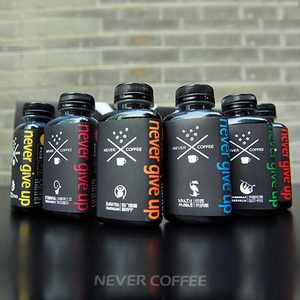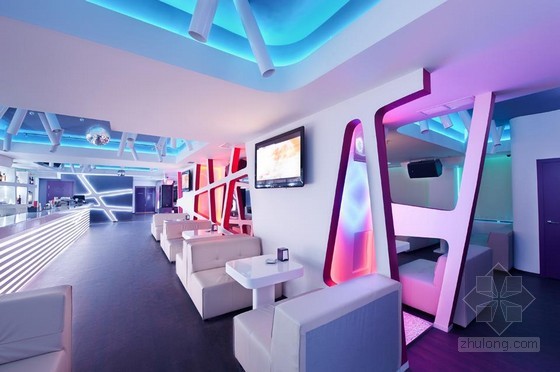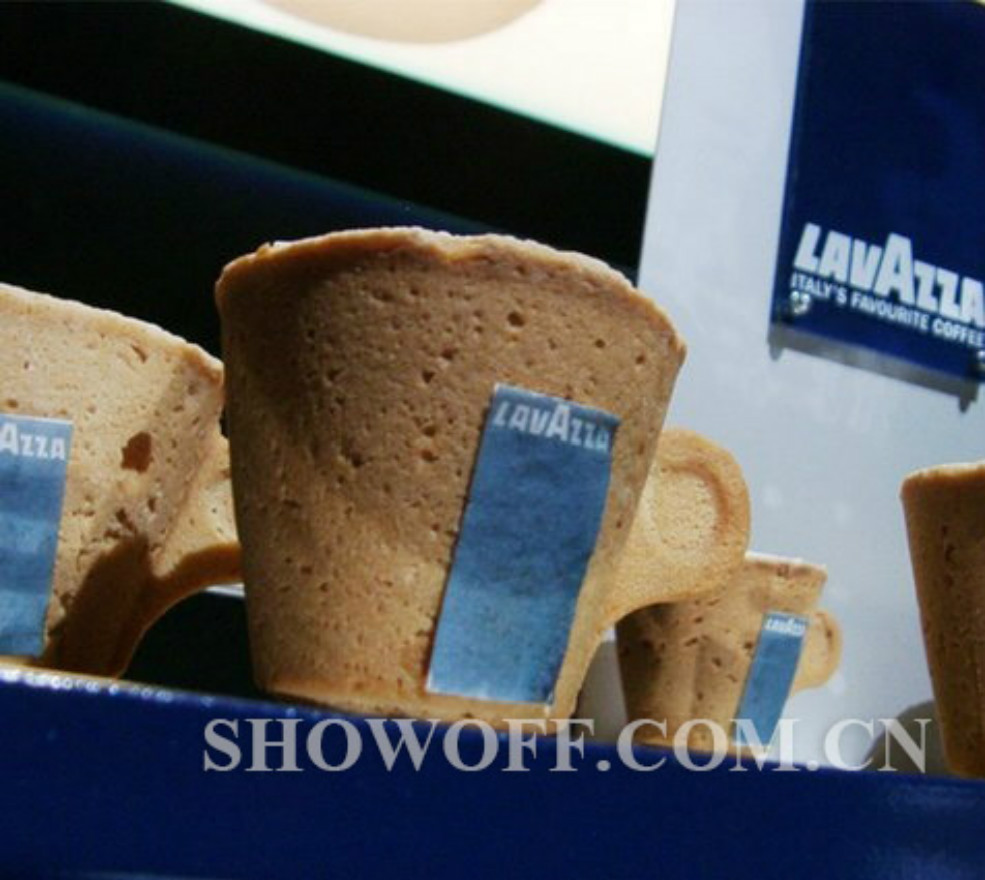News flash: boutique coffee is only 9.9 yuan. Is it "messing up" or "breaking it"?
Since entering the Chinese market, as a refreshing functional drink, the price of fine coffee has been unparalleled.
But things seem to be changing.
Three years ago, Seesaw, founded in Shanghai, pushed the price of fine coffee to 25 yuan, causing controversy in the industry.
Now, Beijing's Never Coffee is playing spoiler, pushing the price of its specialty coffee down to 9.9 yuan, deliberately provoking the nerves of its peers.
Is this a prelude to a price war in the coffee industry, or is it a premeditation to break the price cycle?
I. There's a catfish in the boutique coffee world.
The cafe, Never Coffee, has been in operation for six months.
It is now the biggest customer of Chinese specialty coffee suppliers.
At its peak, it uses 960 kilograms of specialty coffee beans a month--a figure that is usually less than 20 kilograms for an average specialty cafe.
Founder Liu Zuofei is a young crossover.
After graduating with an American Juris Doctor, he had a brief career as a lawyer. And last year, he managed to sell a juice brand for a good price.
Crossers tend to be more barbaric in their attitude to industry rules. They rampage, stirring the pool water of the industry like catfish, wantonly stirring the nerves of their peers.
NeverCoffee is exactly that. It pushed the price of a cup of fine coffee from the industry price of 50 yuan to 9.9 yuan.
The product is simple: with more than 80 points of fine beans, through the filling line, to produce fine coffee that can be heated in a microwave oven. Each set of 6 bottles, there are 6 different flavors such as yejia sherphine and mantenin.
Since its launch in the middle of the year, the product has been surprisingly popular. On the first night of launch, Liu Zuofei's team sold 1950 sets, totaling more than 10000 bottles.
This was also far beyond NeverCoffee's expectations-they had only 100 sets ready.
Liu Zuofei told Kamen that NeverCoffee now sells about 5000 bottles a day. Counting down, the monthly flow is nearly 1.5 million.
This is equivalent to the performance of three Starbucks.
Second, start with the most sensitive price of consumers
The staggering price of 9.9 yuan was decided after repeated quarrels between Liu Zuofei and his partner Kang Jin.
The latter runs two cafes in Beijing all the year round and is now responsible for NeverCoffee's product line, known in the industry as "Master Kang."
Long-term experience tells Kang Jin that the reasonable price of a cup of fine coffee is 50 yuan, which is also the industry recognition price.
Liu Zuofei disagreed.
A long life in the United States made him think more about the price cycle of coffee: it was a lucrative industry.
"A cup of fancy coffee without milk costs 4 cents, 22 yuan for small cups and 28 yuan for large cups. Starbucks sells 600 cups of coffee a day at an average price of 30 yuan, 500,000 a month. Excluding operating costs, Starbucks coffee is at least 10 times more profitable."
The more expensive boutique cafes on the market are forced to maintain high prices because of the high operating costs of single stores and the inability to move in volume.
The team finally decided to break through the price cycle by starting with the most sensitive prices for consumers.
NeverCoffee is aimed at consumers who have just needed coffee in the market.
"There are such a group of consumers in the market, although the base is not particularly large, but it has become dependent on coffee. They have no requirements for the consumption environment, but 30 yuan a cup of coffee is stressful, and they don't want to drink instant coffee. Our products and sales model are aimed at this group."
Third, large flow to save low profits
In Liu Zuofei's design, the cafe was placed at the end and is currently closed to the public.
In order to maintain profits, NeverCoffee simply omitted the scene consumption of cafes. The three new stores under preparation also do not have tables and chairs, only provide ready-to-drink take-away, in order to reduce store rental costs.
Another method is bulk purchasing. NeverCoffee purchases in Ethiopia, Sumatra, Brazil, Honduras, Yunnan and other places, each time in the order of 5 tons, to be transported in containers. Bargaining power for bulk purchases makes it nearly 30% cheaper than independent boutique coffee shops.
Starting from the most sensitive product price of consumers, providing high-quality products with the lowest operating cost, and then capturing consumer passenger flow by cost performance to obtain profits.
This is the business logic of NeverCoffee.

It is worth mentioning that on the third day of NeverCoffee's online sales, the model was used to finalize the 3 million yuan angel round investment of "Hongtai Fund" founded by Yu Minhong and Sheng Xitai.
Is there a future for fine coffee industrialization?
There's a "4321" theory about specialty coffee, which states that the quality of a cup of specialty coffee depends on 40% beans, 30% roasting, 20% equipment, and 10% craftsmanship.
Making coffee into canned products and selling them online in large quantities, such a complicated process, how to ensure the quality of fine coffee?
Thanks to his familiarity with the juice production line, Liu Zuofei and his partner started with equipment and tried to realize the industrialization of fine coffee.
Due to the market gap of related equipment, they had to develop an industrial extraction machine and a semi-automatic filling production line.
This set of equipment takes tons as units and covers an area of more than 200 square meters. "Although the appearance is ugly, it relies on a controllable form to ensure the stability of the quality of each bottle of fine coffee."
At present, the production line can produce 5000 bottles per day, which is already a bit too much for the growing sales. Liu Zuofei's plan is to import a professional industrial extractor from Japan when sales increase to the next stage, and then find a contract manufacturer to solve the production capacity.
This industrialized coffee product has caused controversy in the industry since its birth. Is this bottled, low-cost, mechanically-produced coffee still a fine coffee?
Some colleagues even came to the door to kick the museum, telling their history from bar to baking bean champion, denouncing them as "blind mixing" and "vicious price war".
Of course, this new catfish in the boutique coffee world has no shortage of admirers.
Zheng Songmao, chairman of Quality Cafe, told Kamen that NeverCoffee, a young brand, had paid attention to it as soon as it was launched and was interested in their different model.
Seesaw founder Zong Xinkuang told Kamen that it is a good thing that a team can innovate and try models at the stage where fine coffee is in the Chinese market.
But at the same time, both mentioned that whether this model succeeds or not, the result still needs to be proved by profits.
Liu Zuofei is mentally prepared for this.
"I don't know how to make coffee, but I know the market is cruel. The project may die, or it may become a front-runner. But it's worth the effort anyway."
Xiaobian has something to say: so say ha, Xiaobian for fine coffee industrialization this still retains doubts, perhaps can say not only doubt, or doubt, because the machine is not artificial, no matter how intelligent, the machine does not have many uncontrollable factors like people, Xiaobian thinks that the reason why the hand is charming lies in changing a brewing method, or a certain detail deviates from the track in the brewing process, and the flavor is also different. In the end, the industrialization of fine coffee is satisfied by the people who are keen on fast consumption. For example, the slow-paced people who pursue fine and rich taste cannot accept the industrialization of fine coffee ~
Source: KamenClub By the public number "Coffee workshop" finishing editor
Important Notice :
前街咖啡 FrontStreet Coffee has moved to new addredd:
FrontStreet Coffee Address: 315,Donghua East Road,GuangZhou
Tel:020 38364473
- Prev

Cafe architecture, style design Moldova Cafe Caf é for young people
KRYSHA Cafe in Chisinau, the capital of Moldova, is an integrated functional space designed by GROSUARTSTUDIO, which integrates dining area, coffee shop and club. The designer's intention is to enable customers to experience a positive atmosphere here. The cafe is aimed at young people, so the interior of the space is mainly bright and light. Designers focus on making use of
- Next

Magic cookie cup, sip of coffee, sip of coffee cup, coffee cup you can eat.
Inspired by a delicious combination that many people love, Venezuelan designer Sardi brought an edible cookie Cup idea to Italian coffee company Lavazza. Cookie Cup Co
Related
- What is the difference between Indonesian Sumatra Mantinin coffee and gold Mantinin? How to distinguish between real and fake golden Mantelin coffee?
- What does bypass mean in coffee? Why can hand-brewed coffee and water make it better?
- Unexpected! Ruixing Telunsu lattes use a smoothie machine to foam milk?!
- % Arabia's first store in Henan opens into the village?! Netizen: Thought it was P's
- Does an authentic standard mocha coffee recipe use chocolate sauce or powder? Mocha Latte/Dirty Coffee/Salty Mocha Coffee Recipe Share!
- What is the difference between Vietnam egg coffee and Norway egg coffee? Hand-brewed single product coffee filter paper filter cloth filter flat solution!
- What is the difference between sun-cured and honey-treated coffee? What are the differences in the flavor characteristics of sun-honey coffee?
- How to make Italian latte! How much milk does a standard latte use/what should the ratio of coffee to milk be?
- How to make butter American/butter latte/butter Dirty coffee? Is hand-brewed coffee good with butter?
- Is Dirty the cold version of Australian White? What is the difference between dirty coffee/decent coffee and Australian white espresso?

